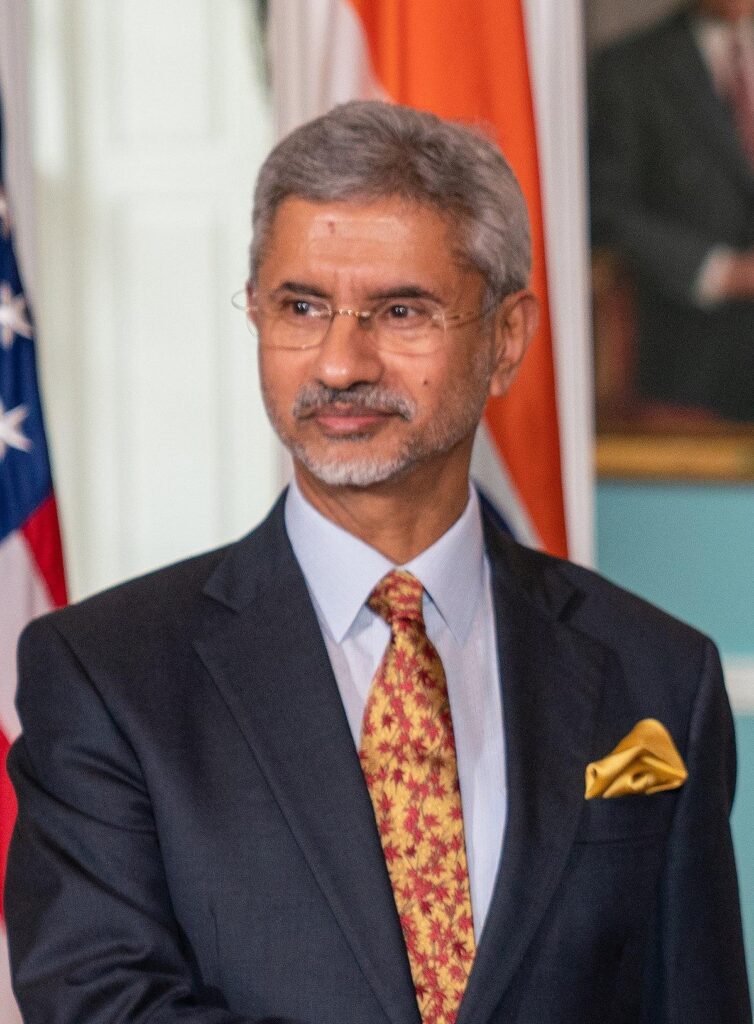In a notable appearance at the Asia Business Council’s Spring Forum, Indian External Affairs Minister S. Jaishankar addressed the evolving dynamics of the international system, emphasizing the transformative changes reshaping global relations and economic partnerships. The forum, which convenes influential leaders from various sectors across Asia, provided a platform for discussion on urgent geopolitical and economic challenges. Jaishankar’s remarks underscored India’s pivotal role in navigating these shifts and fostering collaborative initiatives among nations in an increasingly multipolar world. As policymakers and business leaders gathered to deliberate on the future of regional cooperation and economic growth, Jaishankar’s insights into the current landscape offered a compelling outlook on the opportunities and challenges that lie ahead.
jaishankar Addresses Shifting Geopolitical Dynamics at Asia Business Council Spring Forum
During his address at the Asia Business Council Spring Forum, External Affairs Minister S. Jaishankar provided insightful analysis on the evolving geopolitical landscape that is reshaping international relations.He emphasized the emergence of a multipolar world where conventional power dynamics are being challenged by emerging economies. He stated that nations must adapt strategically, embracing cooperation while remaining vigilant of competition. Jaishankar highlighted the significance of partnerships in achieving mutual goals, particularly in sectors such as trade, technology, and sustainability, which serve as cornerstones for countries navigating the new geopolitical terrain.
Jaishankar further elaborated on the necessity for nations to recognize shared interests amidst diverging aspirations. He pointed out that disruptions caused by global issues, including climate change and health crises, require collective action. In light of these challenges, the minister encouraged a focus on innovative solutions and strategic collaborations to drive economies forward. To illustrate this,he presented the following table that underscores key areas of strategic cooperation:
| Strategic Area | Key objectives |
|---|---|
| Trade | Enhance market access and reduce barriers |
| Technology | Promote innovation and digital partnerships |
| Sustainability | Collaborate on climate action initiatives |
Insights into India’s Role in Reshaping Global Trade Relations
During the Asia Business Council Spring Forum,Indian External Affairs Minister S. Jaishankar emphasized the pivotal transformations occurring within the global trading landscape. He highlighted India’s proactive approach in enhancing its diplomatic and economic ties, effectively positioning the country as a key player amidst shifting global dynamics. Jaishankar underscored the importance of multilateral engagements and cooperative frameworks,which have become more essential than ever,suggesting that countries must work together to adapt to an increasingly interconnected world.
In his address, Jaishankar pointed out several strategic initiatives that India is undertaking to bolster its influence in global trade relations, including:
- Promotion of Regional Trade Agreements: India is actively exploring partnerships within the Indo-Pacific region, aiming to strengthen economic alliances with neighboring countries.
- Technological Innovation: Emphasizing the role of digital trade, India is investing in technology, which is expected to enhance productivity and competitiveness.
- Sustainable Advancement Goals: Aligning trade practices with sustainability, India is committed to responsible trade that benefits both the economy and the surroundings.
| Focus Area | Current Status | Goals |
|---|---|---|
| Regional Trade Agreements | Active engagements with ASEAN and SAARC | Expand market access and reduce trade barriers |
| Technological Innovation | investment in startups and tech infrastructure | Enhance digital economy participation |
| Sustainable Practices | Initiatives for green trade | align trade with environmental goals |
Recommendations for Businesses to Navigate the Evolving International Landscape
As businesses confront the shifting dynamics of the international landscape, adapting to ongoing changes is essential for sustained growth and success. Organizations must prioritize strategic agility, enabling them to quickly shift operations, supply chains, and market focus in response to new geopolitical realities. Key strategies to consider include:
- Diversification of supply Chains: Reducing dependency on a single market or supplier network helps mitigate risks associated with geopolitical tensions.
- Investment in Technology: Leveraging technological advancements can streamline operations and open new market opportunities.
- Building Local Partnerships: Collaborating with local firms enhances market presence and facilitates quicker navigation through regional regulations.
- Focus on Sustainability: Adapting to sustainability trends can not only meet regulatory pressures but also drive consumer preference in an increasingly eco-conscious market.
Furthermore, navigating through this complex environment necessitates heightened diplomatic engagement. Businesses should consider establishing dedicated teams for government relations to foster stronger ties with local and international authorities. This approach can enhance understanding of regulatory frameworks and allow for proactive adaptation. Additionally, companies could benefit from employing risk assessment tools to evaluate emerging geopolitical risks comprehensively. A summarized view of the core focus areas for businesses is illustrated below:
| Core Focus Areas | Action Items |
|---|---|
| Risk Management | Continuous assessment and adaptation strategies |
| Market Intelligence | Leverage data analytics for informed decision-making |
| Competitive Analysis | Monitor global competitors for strategic insights |
| Regulatory Compliance | Establish protocols for evolving laws and guidelines |
Key Takeaways
Jaishankar’s participation in the Asia Business Council Spring Forum underscores India’s pivotal role in an evolving international landscape. As global dynamics shift, his insights offer a glimpse into the opportunities and challenges that lie ahead for asian economies.The discussions held at the forum reflect a growing recognition of the need for collaborative approaches to address pressing geopolitical and economic issues. As nations navigate this complex terrain, the emphasis on dialog and partnership will be crucial in shaping a resilient and inclusive future for the region. With leaders like Jaishankar at the forefront, Asia’s collective voice is poised to influence the trajectory of global governance in the years to come.
